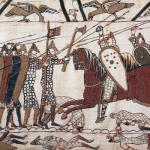We, humans, have difficulty understanding the very small and the very large, but scale plays an increasingly important role in our lives - think Amazon or Twitter. What if we taught about scale in school? Are we becoming more or less violent? An update on COVID-19's origin story - a cautionary tale? What does the Federal Trade Commission have to do with the problems at the Capital?
violence
Author Steven Pinker's observation, that the world is less violent now than ever in human history, is probably true.
Mass homicides are horrific tragedies. Society must do whatever's possible to understand them fully, so as to prevent them. But people also need to separate the data from the myths and the social, political and moral narratives that often form around crime.
What explains disparate public health threats such as senseless gun violence and anti-vaxxerism? The answer may come from Russian novelist Aleksandr Solzhenitsyn, who said that the West had become too focused on personal rights at the expense of duty to one's neighbor.
The last season of Game of Thrones is almost upon us. A group of researchers has looked at the chances of dying in the previous seven seasons. Spoiler alert: Do not sell life insurance to prominent, loyal, males.
The Organic Consumers Association, which promotes conspiracy theories about 9/11, chemtrails, and FEMA, is pushing another one: Pesticides cause school shootings.
High-profile incidents in which a mentally ill person commits a violent crime has led to the stereotype that these struggling people all pose a dire threat to society. But a team of researchers, studying data from more than 75,000 patients, has developed a model that accurately predicts which patients are unlikely to become violent.






